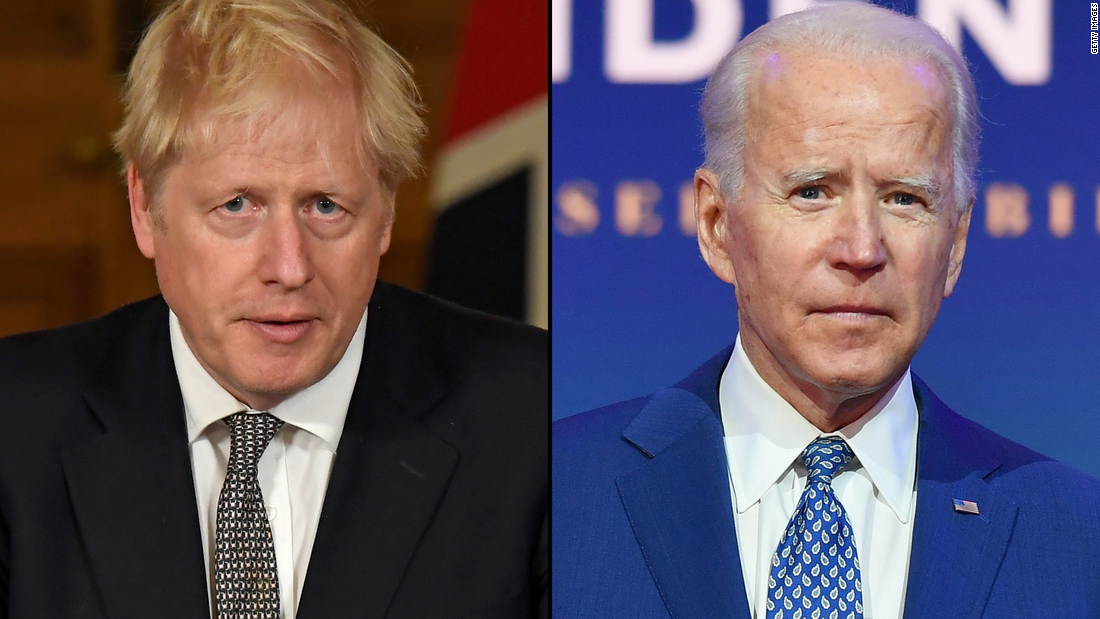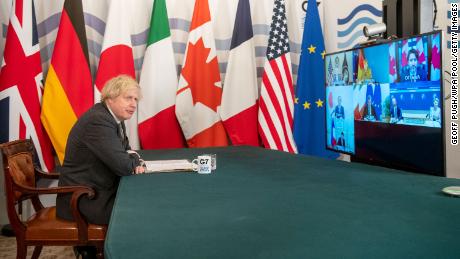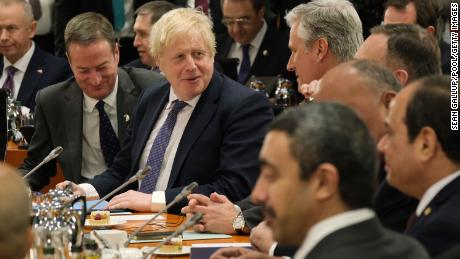Analysis: Biden and Johnson relish the role of global good guys at G7. But bonhomie may be tested by hard reality
For generations British holidaymakers have flocked here to the country’s most southwesterly tip for its relaxing, restorative charm. Traditional calm however will be upended this week as leaders of the world’s richest democracies meet face-to-face for the first time in almost two years to sort out our planet’s problems — principally, global warming and the Covid-19 pandemic.
For the prime ministers, presidents and their attendant aides, no summer break recuperation awaits in Cornwall, although they will all expect to leave buoyed in the belief they have done good for us all, and in the way they love best: around a table — not a computer screen. Last year’s G7, due to have been hosted in the US, was canceled because of the pandemic.
Both the summit’s host, UK Prime Minister Boris Johnson, and US President Joe Biden are itching to burnish credentials as global good guys. Each brings their own bag of needs; Johnson wants a global Britain, and to be best buddies with Biden, who in turn wants everyone’s backing against China.
Other attendees have their own agendas too, of course. German Chancellor Angela Merkel values America leadership — but not as much as she once did. France’s President Emmanuel Macron wants support in Africa’s Sahel region. Japan’s Yoshihide Suga shares many of Biden’s concerns about China and is keenly counting on allies to aid the Olympics. Italy’s Mario Draghi will look to the G7 to support stability in Libya and control of Mediterranean migration routes. Canada’s Justin Trudeau will likely wear a wry smile, remembering the 2018 G7 he hosted and the chaos caused when then-US President Donald Trump refused to endorse the final joint communique.
Yet by the time the leaders arrive in this hilly, English idyll, much of the script of this G7 and its final communique will already be written. A big last step came just days ago as G7 finance ministers agreed to back Biden’s push for a global minimum tax of 15% on corporate earnings. That’s not to say that everything at the summit is pre-ordained; Trump was an object lesson in how nothing can be taken for granted.
Back in February, the leaders met for a virtual G7 soon after Biden came to office. They laid out broad goals to “work together to beat Covid-19 and build back better” as well as “accelerate global vaccine development and deployment.” They also pledged to “put our global ambitions on climate change and the reversal ofp biodiversity loss at the center of our plans.”
Since then, much else has come up around the world. Belarus forced a passing civilian airliner to land, whereupon a Belarus opposition journalist on board was arrested along with and his Russian girlfriend.
Russia, wittingly or unwittingly, is hosting ransomware attackers who recently crippled US gas distribution pipelines. The US finally decided to pull military forces out of Afghanistan, cascading similar exits by allies.
Tehran has all but run out of road negotiating Washington’s reentry to the Iran nuclear deal and tested the credulity of the global nuclear watchdog, the IAEA, to within a hair of breaking point.
And most worrying of all for Biden, the flexing of China’s muscles — flying fighter jets and bombers around Taiwan, as well as its assertiveness in the South China Sea — has become ever more bold.
No surprise then that Biden, while not host of this year’s summit, has been keen to share the G7 driving seat, in which Johnson has been an apparently willing partner by inviting America’s the US’s important Indo-Pacific partners — India, South Korea, Australia — to the G7.
The move got a welcome nod of approval at the G7 foreign minister’s meeting in London last month. US Secretary of State Antony Blinken heaped praise on the UK, thanking his counterpart Dominic Raab for “your leadership in building an incredibly robust agenda.”
Johnson especially needs Biden’s that support right now, over amid post-Brexit wrangling over Northern Ireland trade rules with the European Union and Ireland; so far Biden leans towards the Irish.
The pair plan their first face-to-face meeting Thursday before the other G7 leaders arrive, with Downing Street announcing a renewed “Atlantic Charter,” refreshing the one agreed between Winston Churchill and Franklin D. Roosevelt in 1941.
Johnson hopes, of course, to bask in the spotlight. The British Prime Minister plans to boost the UK’s global credibility, with calls for the G7 to help fund women’s education in developing countries, set ambitious targets for global Covid-19 vaccine rollout by the end of 2022, and call for an environmentally friendly post-pandemic economic re-build.
He’ll be hoping a rebellion by some of his own MPs in London to challenge his government’s cuts to the UK’s foreign aid budget, from 0.7% of GDP to 0.5%, fails to materialize and puncture the generous persona he plans to project in Cornwall.
Biden meanwhile wants consensus and support in holding China to account on human rights and other abuses, and plans to speak out against former G8 member Russia on cyber espionage.
But despite the myriad other topics, Covid-19 is never going to be far from leaders’ minds. Intense safety protocols trialled during the G7 foreign ministers’ meetings in May will be in force — rules so stringent that India’s foreign minister ended up participating in the last couple of sessions remotely following a possible close coronavirus encounter.
Outside the venue, security is also a priority: navy warships are patroling the Cornish coast, beaches have been closed and thousands of police drafted in from across the UK to seal off the area and keep out protestors.
The Carbis Bay G7 is a chance for the UK to shine. So far the weather is playing its part, with sunshine and warm weather — at least by British standards — predicted for the weekend. Biarritz and Taormina it is not, but the stakes at this summit are much higher.
![]()






